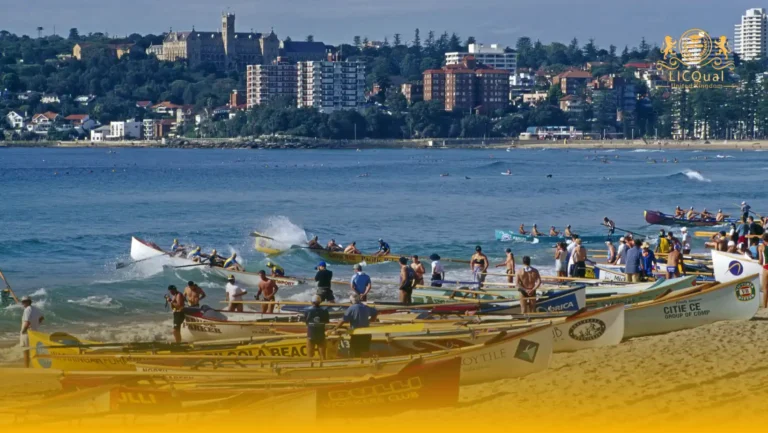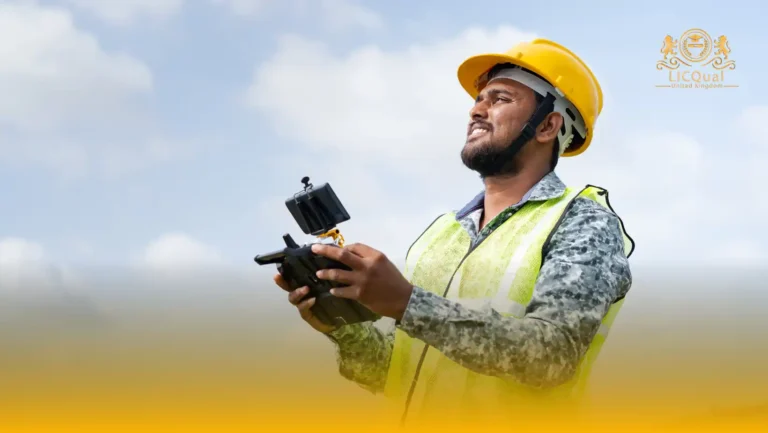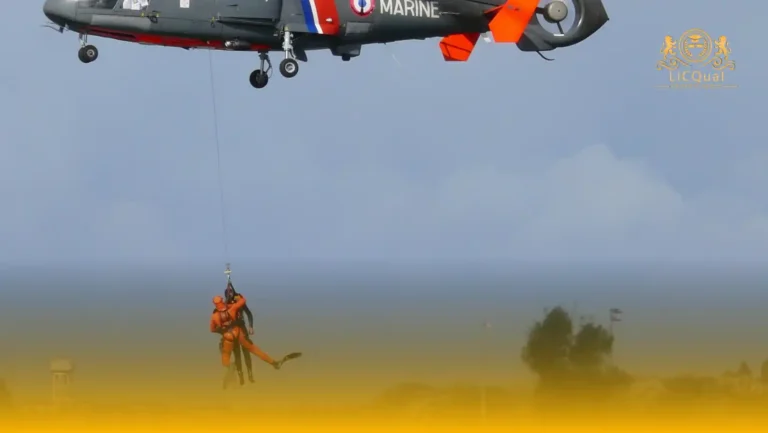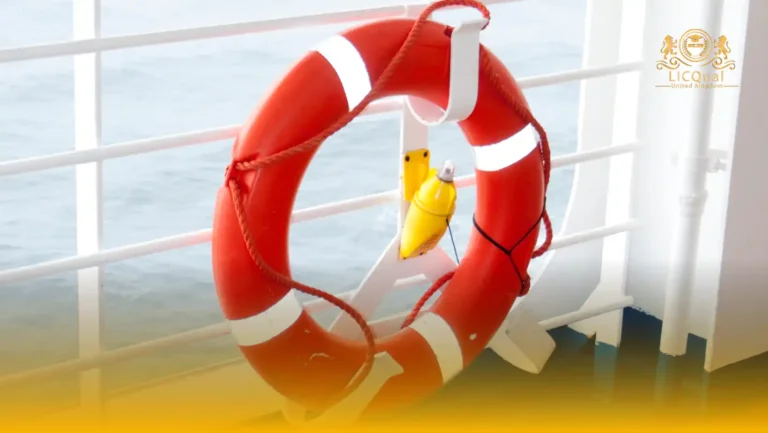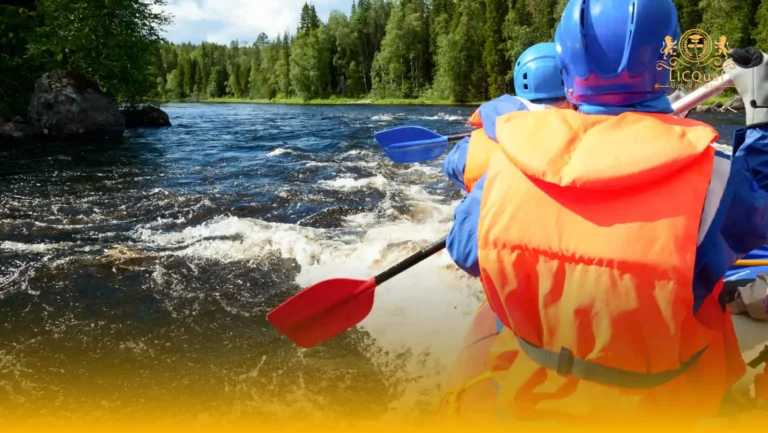The LICQual Level 3 Award in Water Rescue Equipment Training (WRET) is a specialised qualification designed to equip participants with the essential skills, knowledge, and competence to effectively use water rescue equipment in emergency situations. This internationally recognised course focuses on both practical and theoretical aspects of water rescue, ensuring learners can respond quickly, safely, and efficiently in a variety of aquatic environments.
Participants will gain hands-on experience with a wide range of water rescue tools and devices, including throwlines, rescue poles, life rings, flotation devices, and personal protective equipment (PPE). The course also covers risk assessment, operational safety, and rescue planning to ensure compliance with recognised water safety standards and industry regulations.
By completing this training, learners will be prepared to operate confidently in fast-flowing rivers, flood conditions, coastal waters, and still-water environments. Emphasis is placed on safe rescue techniques, self-rescue awareness, and team coordination to maximise effectiveness during critical operations.
This qualification is ideal for emergency service personnel, search and rescue teams, flood response units, maritime and port workers, outdoor activity instructors, and community safety officers. Whether for professional deployment or volunteer response, the WRET course enhances readiness, minimises risks, and improves overall operational outcomes in water-related incidents.
Through expert-led instruction, practical exercises, and scenario-based training, the LICQual Level 3 Award in Water Rescue Equipment Training ensures participants meet international best practices in aquatic safety and rescue. Upon successful completion, learners will hold a recognised certification that demonstrates their capability to operate water rescue equipment safely, effectively, and in compliance with global safety standards.
Course Overview
Qualification Title
LICQual Level 3 Award in Water Rescue Equipment Training (WRET)
Total Units
6
Total Credits
6
GLH
12
Qualification #
LICQ2200629
Qualification Specification
To enroll in the LICQual Level 3 Award in Water Rescue Equipment Training (WRET), applicants must meet the following criteria:
|
Qualification# |
Unit Title |
Credits |
GLH |
|---|---|---|---|
|
LICQ2200629-1 |
Introduction to Water Rescue Operations |
1 |
6 |
|
LICQ2200629-2 |
Water Rescue Equipment Types and Functions |
1 |
6 |
|
LICQ2200629-3 |
Personal Protective Equipment (PPE) for Water Rescue |
1 |
6 |
|
LICQ2200629-4 |
Practical Skills in Water Rescue Equipment Deployment |
1 |
6 |
|
LICQ2200629-5 |
Safety Procedures and Risk Management in Water Rescue |
1 |
6 |
|
LICQ2200629-6 |
Teamwork, Communication, and Post-Rescue Procedures |
1 |
6 |
By the end of this course, learners will be able to:
1. Introduction to Water Rescue Operations
By the end of this unit, learners will be able to:
- Explain the fundamental principles, terminology, and scope of water rescue operations.
- Identify various types of water environments and associated hazards.
- Describe the roles, responsibilities, and limitations of water rescue personnel.
- Outline the ethical and professional standards in water rescue activities.
2. Water Rescue Equipment Types and Functions
By the end of this unit, learners will be able to:
- Classify different types of water rescue equipment and describe their functions.
- Demonstrate correct inspection, maintenance, and storage procedures for rescue equipment.
- Explain the operational limitations of each equipment type in different rescue scenarios.
- Select appropriate equipment based on the nature of the rescue operation.
3. Personal Protective Equipment (PPE) for Water Rescue
By the end of this unit, learners will be able to:
- Identify essential PPE used in water rescue operations and explain their purpose.
- Demonstrate correct procedures for donning and doffing PPE, including dry suits, helmets, and buoyancy aids.
- Perform PPE inspection, cleaning, and maintenance to ensure operational readiness.
- Apply PPE selection principles based on risk assessment and environmental conditions.
4. Practical Skills in Water Rescue Equipment Deployment
By the end of this unit, learners will be able to:
- Demonstrate correct handling and deployment of throw lines, rescue poles, and flotation devices.
- Apply both boat-based and shore-based rescue techniques effectively.
- Operate mechanical and powered rescue equipment safely under supervision.
- Adapt deployment methods to suit varying environmental and operational conditions.
5. Safety Procedures and Risk Management in Water Rescue
By the end of this unit, learners will be able to:
- Conduct hazard assessments and apply dynamic risk evaluation during rescue operations.
- Identify and operate within designated safety zones during incidents.
- Follow established emergency procedures and incident reporting requirements.
- Apply control measures to minimise risk to rescuers, casualties, and bystanders.
6. Teamwork, Communication, and Post-Rescue Procedures
By the end of this unit, learners will be able to:
- Demonstrate effective communication using hand signals, radios, and verbal commands.
- Coordinate actions with team members and multi-agency partners during rescue operations.
- Provide appropriate post-rescue care to casualties until handover to medical services.
- Conduct equipment recovery, cleaning, and post-incident debriefing in line with organisational policies.
The LICQual Level 3 Award in Water Rescue Equipment Training (WRET) is ideal for professionals and individuals seeking advanced skills in water rescue and emergency response. This Level 3 award is perfect for lifeguards, rescue teams, emergency services personnel, and supervisors responsible for water safety operations. Participants will gain practical expertise in using rescue equipment, handling emergencies, and leading safe water-based operations.
Lifeguards and Aquatic Centre Staff
- Pool lifeguards looking to enhance rescue skills
- Supervisors managing daily water safety operations
- Staff responsible for emergency drills and safety checks
- Individuals handling equipment maintenance and inspections
- Coordinators leading aquatic safety programs
- Professionals ensuring compliance with safety regulations
Coastal and Marine Facility Teams
- Beach safety officers monitoring public safety
- Staff overseeing marinas, docks, and water recreation areas
- Professionals conducting rescue operations in open water
- Team leaders implementing safety protocols
- Staff managing visitor safety in coastal activities
- Individuals assessing and mitigating water hazards
Emergency Services Personnel
- Fire and rescue teams specializing in water emergencies
- Paramedics and first responders enhancing rescue techniques
- Flood response and disaster management professionals
- Staff coordinating emergency drills and exercises
- Individuals implementing risk assessment and safety planning
- Team leaders supervising water rescue operations
Hospitality and Tourism Staff
- Resort and hotel personnel managing pools and recreational water areas
- Event coordinators running water-based activities safely
- Staff ensuring guest safety during aquatic programs
- Professionals maintaining compliance with local safety laws
- Supervisors implementing health and safety measures
- Staff managing recreational water emergency plans
Trainers and Educators
- Instructors delivering water rescue training programs
- Coaches guiding rescue technique and equipment handling
- Professionals developing educational water safety content
- Trainers assessing participant skills and knowledge
- Staff mentoring teams in emergency response practices
- Individuals promoting awareness of water hazards
Government and Regulatory Staff
- Inspectors evaluating water safety compliance
- Officials enforcing aquatic safety legislation
- Professionals developing water safety guidelines
- Staff conducting audits and reporting incidents
- Individuals managing regional or national water safety programs
- Team leaders recommending improvements for safe operations
Aspiring Water Rescue Leaders
- Individuals aiming to lead water rescue teams
- Professionals seeking career advancement in aquatic safety
- Staff managing long-term safety and emergency strategies
- Leaders implementing operational safety procedures
- Professionals gaining internationally recognized certification
- Team leaders enhancing practical water rescue skills
Assessment and Verification
All units within this qualification are subject to internal assessment by the approved centre and external verification by LICQual. The qualification follows a criterion-referenced assessment approach, ensuring that learners meet all specified learning outcomes.
To achieve a ‘Pass’ in any unit, learners must provide valid, sufficient, and authentic evidence demonstrating their attainment of all learning outcomes and compliance with the prescribed assessment criteria. The Assessor is responsible for evaluating the evidence and determining whether the learner has successfully met the required standards.
Assessors must maintain a clear and comprehensive audit trail, documenting the basis for their assessment decisions to ensure transparency, consistency, and compliance with quality assurance requirements.


